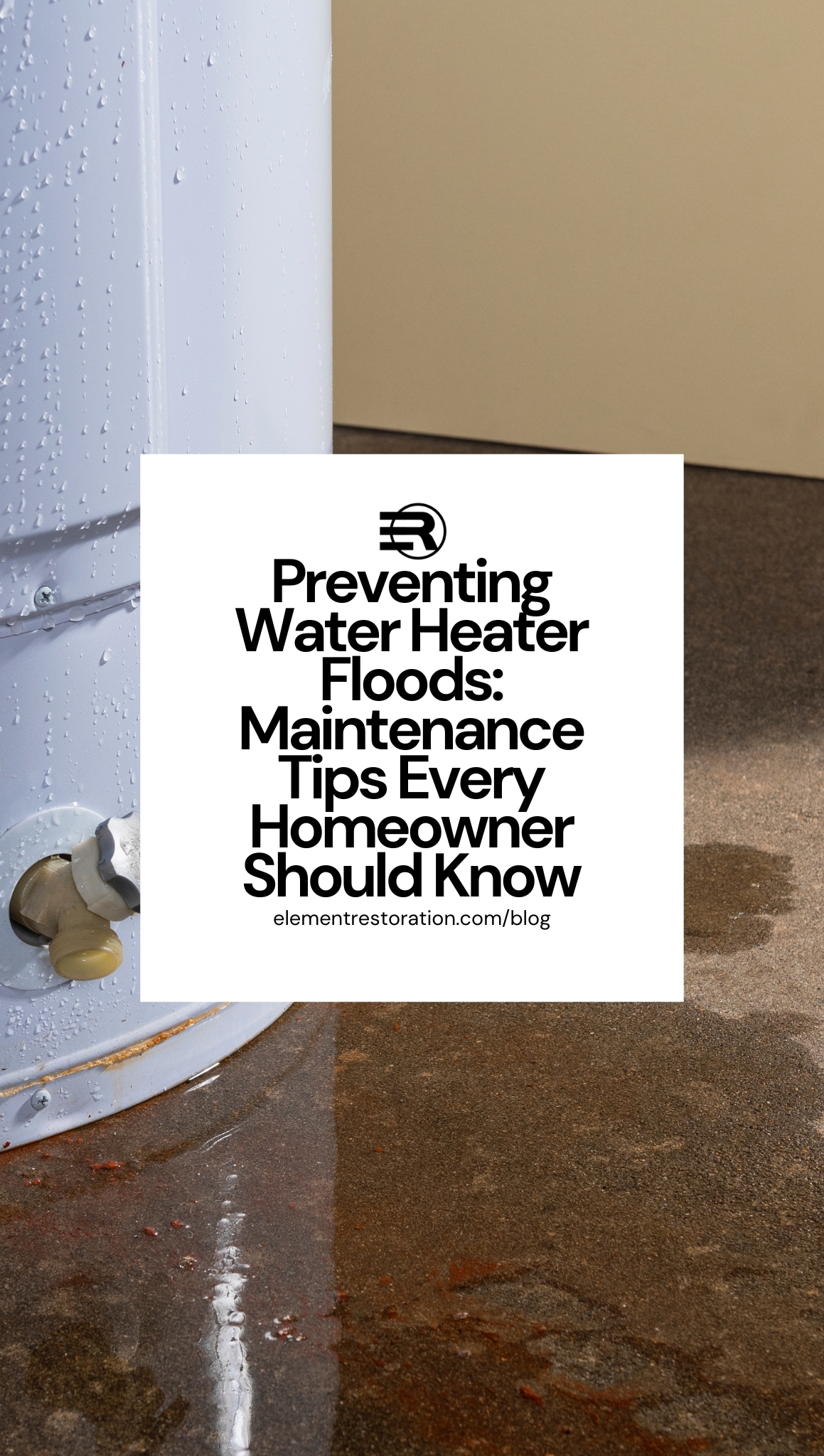As a homeowner, the last thing you want is to walk into your home and find your water heater flooding your space, causing extensive damage. A water heater flood is not only inconvenient but can lead to costly repairs and mold growth if left untreated. But here’s the good news: with regular maintenance, you can avoid the majority of water heater-related disasters. In this blog post, we’ll guide you through key maintenance tips to prevent water heater floods and keep your home safe.
1. Regularly Check for Leaks
The first step to preventing water heater floods is to regularly inspect your water heater for signs of leaks. Leaks often start small but can escalate into a major flood if not addressed quickly.
- Inspect the pipes: Ensure that all connections to the water heater are tight and secure. Leaks often occur around these areas, so it’s essential to check them periodically.
- Check the tank: Look for any signs of corrosion or rust around the water heater’s tank, which may indicate a slow leak. Even small leaks can cause significant water damage over time.
- Test the temperature relief valve: This valve is designed to release water if the tank pressure gets too high. If it’s not functioning properly, excess pressure could cause a rupture, leading to a flooding disaster.
2. Flush Your Water Heater Annually
One of the most effective ways to maintain your water heater and prevent issues is by flushing it once a year. Over time, sediment builds up at the bottom of the tank, which can weaken the tank and cause leaks or malfunctions.
- Remove sediment buildup: Sediment can corrode the tank and reduce the efficiency of your water heater. Flushing the tank will help remove this buildup, preventing premature tank failure.
- Improve water heater efficiency: A clean tank helps the heater run more efficiently, potentially reducing your energy bills while extending the life of the appliance.
- Ensure proper drainage: Make sure the water flows freely out of the tank during the flushing process. Clogged drain valves can cause water to accumulate inside, which might lead to flooding.
3. Replace Your Water Heater Before It Reaches Its Lifespan
Water heaters don’t last forever. Typically, they have a lifespan of 10 to 15 years, and after that, the risk of leaks and floods increases. If your water heater is nearing the end of its life, it’s crucial to take action before it fails.
- Know the age of your water heater: Check the manufacturer’s label for the date of installation. If it’s approaching the 10-year mark, start budgeting for a replacement.
- Watch for signs of aging: If you notice your water heater is making strange noises or if water is leaking from the tank, it’s a clear sign that the unit is reaching the end of its lifespan.
- Consider upgrading: Newer water heaters come with advanced features, such as built-in leak detection systems and higher energy efficiency ratings, which can prevent water damage and save on utility bills.
Conclusion: Take Action Now to Prevent Water Heater Floods
Preventing a water heater flood is much easier and more cost-effective than dealing with the aftermath of one. By regularly checking for leaks, flushing the tank, and replacing your water heater at the right time, you can protect your home from unnecessary water damage.
Action Steps:
- Inspect your water heater for leaks and corrosion.
- Flush your water heater once a year to remove sediment buildup.
- Replace your water heater before it reaches the end of its lifespan.
If you find yourself dealing with water damage from a water heater flood, don’t wait—call us for your water, fire, mold, and roofing disaster restoration needs at 850-462-5135.
We serve the Florida Panhandle, frequently serving Pensacola, Destin, Navarre and Panama City. We hope you don’t need us, but we would be honored to help you if you do.
Contact Us
For more information or to request our services, contact us at:
📞 Phone: 850-462-5135
🌐 Website: www.elementrestoration.com
We serve the Florida Panhandle, frequently serving Pensacola, Destin, Navarre and Panama City. We hope you don’t need us, but we would be honored to help you if you do.
Follow us on social media for more tips and updates:
Stay informed and stay safe, Northwest Florida! Let Element Restoration help you with all your water remediation needs.

Be The First To Comment